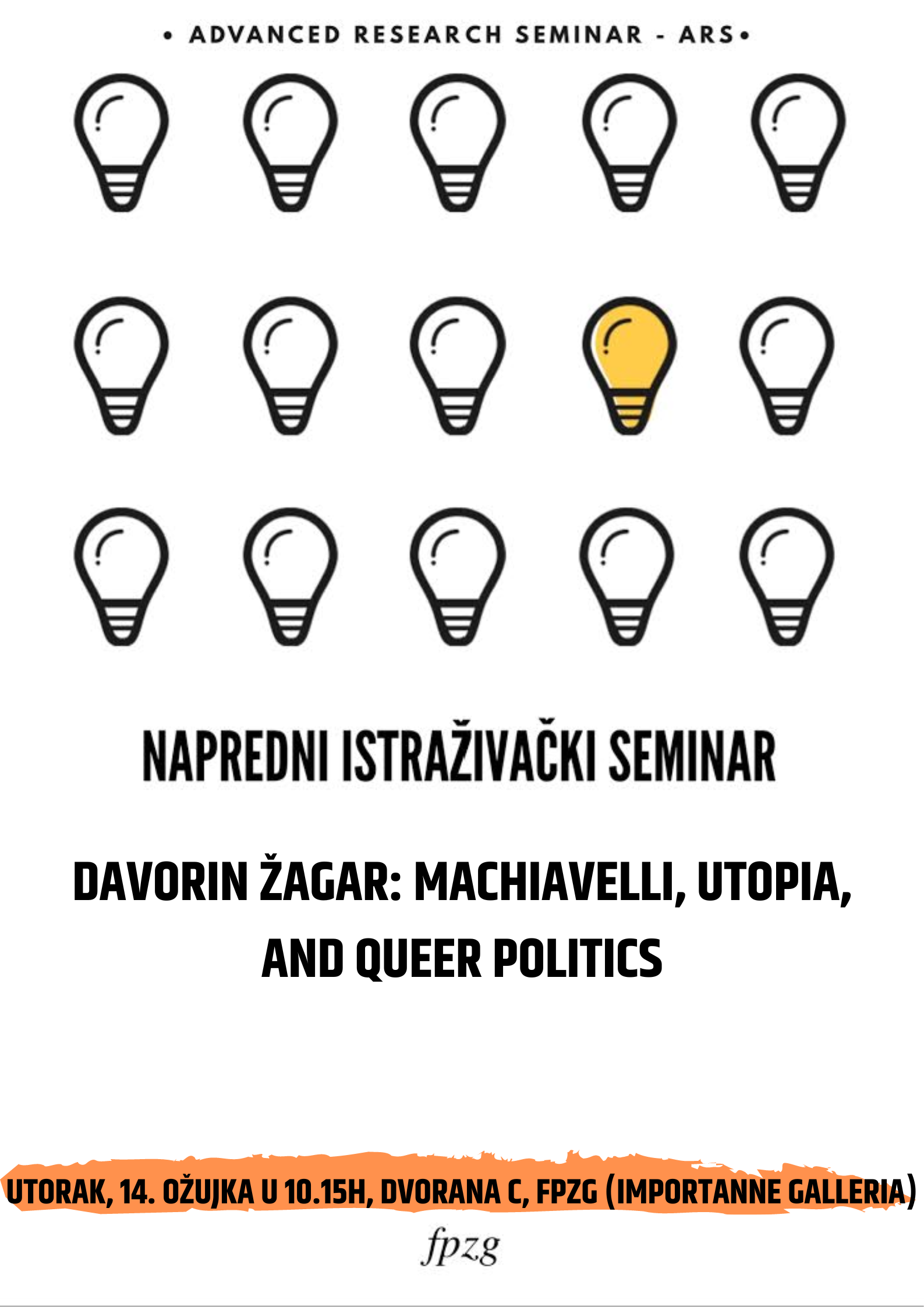Davorin Žagar: Machiavelli, Utopia, and Queer Politics, March 14, 10.15-11.45, Room C
Machiavelli’s most innovative and provocative thesis is the one concerning the desirability and productivity of conflict between the great and the plebs. This presentation proposes queer utopianism as an alternative optic through which to understand Machiavelli’s perspective on coping with the conflicting relations he regards as indelibly inscribed in the social fabric. The figure of the great and their desire to oppress and command the people is, seen from this optic, related to the perspective of ‘what is’, that is, to the politics of the normal and customary. The plebeians and their longing to be free from the oppression of the great is, conversely, associated with the perspective of what might and should be, one that reveals the possibilities for change immanent in the here and now. Machiavelli’s political texts might be approached in terms of a project that seeks to educate plebeian desire not to be oppressed, to resist the lure of the normal and seemingly inevitable, and to express itself in the form of a desire for the not-yet-here. Machiavelli’s writings thereby serve as a source for rethinking queer desire and its function in democratic society. Above all, they help us more clearly to appreciate queer politics’ generative, productive, world-making dimension. As such, the sort of queer utopian politics figured through plebian political innovation in Machiavelli could and must be transformed into a source of life, a vehicle of change, and a means to liberty for the entire community.
Davorin Žagar is a post-doctoral research fellow at the University of Adolfo Ibáñez, Faculty of Liberal Arts where he is currently working on the project 'Queering Machiavelli'. Davorin holds a PhD degree in Political Science from the University of Zagreb. He was a Fulbright visiting researcher at Tufts University, and a visiting researcher at the University Rome Three and the European University Institute in Florence. His research interests include history of political thought, queer theory, sex & gender studies.

 Pristupačnost
Pristupačnost